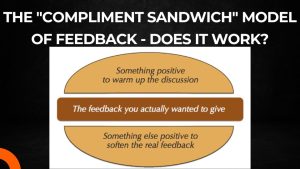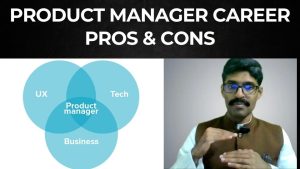The Insider Guide to Careers
Insider information, secrets and tips about getting hired and building careers. For employees and job candidates.
Google has been in the news for all the wrong reasons. The launch of the Gemini AI (a new version of Bard) was a disaster, destroying shareholder wealth by 90 billion dollars. An earlier messup with Bard AI year brought Google stock down by 100 billion dollars. The Indian Adani group faced enormous flak for losing 136 billion dollars rather quickly. It led to a Government securities board investigation, a Supreme Court case and a lot of restructuring within the group. None of this has happened at Google. It seems Google can play around with shareholder money as it likes with zero consequences. If it has gotten away twice, what is out there to prevent it from getting away scot-free any number of times? This indifference shows how nonchalant the Western regulators are.
Microsoft and Google are two studies in contrast. At one time, Microsoft was the dinosaur trying to act nimble, and Google was the young kid on the block breaking all the archaic rules. Soon after two Indians took over, Satya and Sundar, things changed dramatically. The fates of both companies are intertwined with the backgrounds of both people.
Satya grew up in Hyderabad, the son of civil servants. These were the most prestigious jobs in the British Raj. He attended an elite high school, and his undergraduate degree was in a private university where rich people often end up. He has described himself as an average student in his early days. He went to an unremarkable school for his Masters degree. His extraordinary love for software engineering and development distinguished him early on. His early videos on YouTube reveal an extreme interest in engineering. He is an engineer at heart who happened to get into management.
On the other hand, Sundar was from a school inside the IIT campus. His father was an executive in a foreign MNC. Early accounts of his life reveal a stressful life in a small house in Chennai. He majored in Metallurgy, which is as far from computer science as possible. After undergrad at IIT, he went to Stanford for a master’s degree in Material Science, which also has no connection to CS. He worked for seven-odd years in Applied Materials, which also has no connection to software engineering. It was clear that getting to Wharton for an MBA was to get away from his life in materials R&D. He wanted a new life and weirdly began as a consultant at McKinsey post-MBA. He then got the break to join Google as a Product Manager.
Sundar is a person who, by the standards of most IIT students, has probably not written a line of code until he joined Google, when he was well into his thirties. At that age, if one has not picked up coding, they probably never will or can. The careers of Satya and Sundar reveal answers to the question: Can one be a great product manager and, by extension, a business leader without understanding engineering or coding?
Going by Sundar’s early success, the answer seems yes. He was a stellar product manager, director and BP, leading Google’s successful forays into Chrome and Android. Sundar is often called a peacetime CEO. There was a time when he came to Samsung Korea to solve a delicate issue. His lack of ego made the trip a big success. I was in Samsung headquarters at that time.
However, regardless of how awesome a business person is, they are always at the mercy of engineers. MBA folks, especially the non-coders and non-CS people, typically get a lot of grief from software developers who think they can run roughshod over the big-talking business folks. The only way to gain their credibility is to show expertise in their space and at least be very comfortable in challenging the assumptions and models employed by software developers. That can happen only when leaders can understand what the engineers do.
Outsourcing engineering to other executives, without direct supervision from the CEO, can cause all sorts of product development bottlenecks. Sundar created the most desired company in the world, head and shoulders above Microsoft. Sadly, he allowed the culture to drift over time. Google was firmly in the middle of the culture wars. When I interviewed at Microsoft and Google a couple of years back, it was clear that Microsoft had all employees on deck to take forward Satya’s vision, but Google was floundering in many ways. Many teams and groups seemed to be at cross purposes. I remember asking questions about Google’s mistakes with Orkut and social media and was promptly shut down. It seemed as if there were taboo questions that nobody could dare ask.
The mishandling of James Damore’s infamous memo was another sign that Google culture was turning autocratic. His abrupt firing sent a chilling message that one disagreed with Google leaders at enormous personal peril of being sacked. All these issues came to a head when Microsoft began using Open AI and Chat GPT to break the Google monopoly in search. Paid journalists kept pushing the AI capabilities, and soon Google was caught flatfooted. In a rush to create products, they had to make tough choices. However, a clueless CEO can hardly be of any help.
Satya was quick to ease Bill Gates and Steve Ballmer out of management. Civil servants in India understand this well, and Satya would have learned this from his parents. On the other hand, Google has massively struggled with this transfer of power. When co founder Sergey Brinn, who had stepped down earlier from leadership, came back to lead the AI efforts, that idea was a disaster in the making. With such a senior person around, nobody in the company would have had the courage to push back against an blunders made by the leadership team. Sergey’s apology for the Gemini failure indicates how much he contributed to the fiasco. Sundar should have seen this coming and asked the Google founders to stay out. The fact that he did not betrays an inability to ask the hard, tough questions. Frequent dabbling by actors who are unwilling to let go of control does not help a professional company.
Sundar gets an extraordinary pay package, which dwarfs Satya’s package. At last count, it was more than 200 million dollars a year. Having grown up in a ruthless background of schooling and education in Chennai, one’s complete focus is making as much money as possible. Sundar is like the proverbial Midas scampering to turn everything he touches into gold. He should also remember that the story did not end well. There was a report of him managing over 20 smartphones daily, a reminder that his job has become so widespread that Sundar can barely catch up. Taking over the Alphabet group because it paid more was also not a great choice.
I am personally a big fan of Google. However, the company should let go of the hubris that has overtaken it to create change. Advertising spam as page one links is a recipe for poor user experience. People do not mind ads as long as they get relevant results. Microsoft AI results are far better in locating context and giving meaningful answers. I cannot understand why Google, with the best software engineers in the world, cannot develop suitable products that genuinely help the end user.
For more such articles, add me on Linkedin or join my Whatsapp community to ask me questions.



